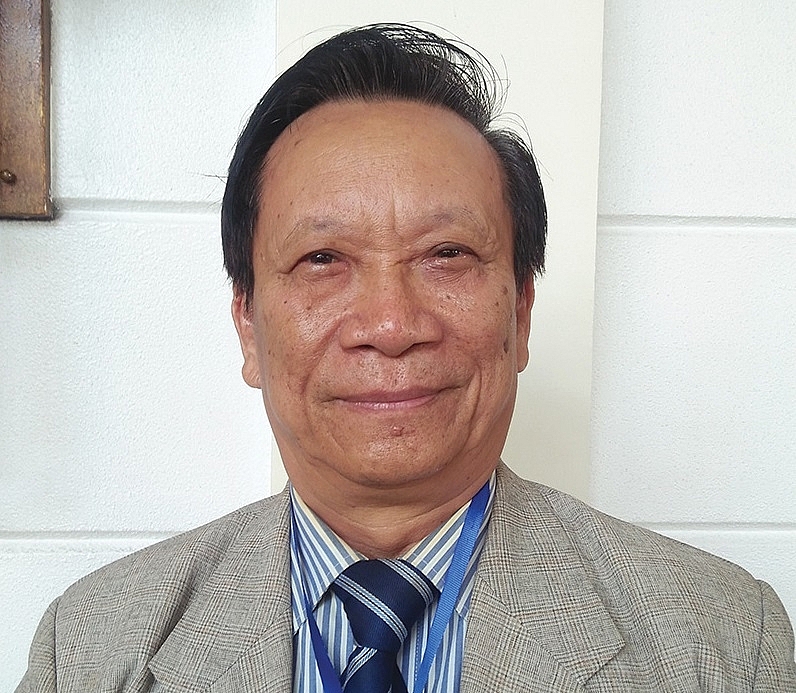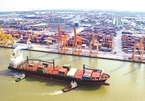Nguyen Van Xuong, former Vietnamese Ambassador to South Korea, talked about how the two nations can boost their trade and investment ties fuelled by a bilateral free trade agreement.
 |
|
Nguyen Van Xuong, former Vietnamese Ambassador to South Korea
|
How has the Vietnam-Korea Free Trade Agreement (VKFTA) impacted both countries’ trade and investment ties since it was signed and took effect in 2015?
The VKFTA has had huge impacts on the trade and investment relation between Vietnam and South Korea. South Korea is now Vietnam’s second-largest trade partner after China. Vietnam was South Korea’s eighth-largest trade partner in 2014, but has become the fourth-largest trade partner since the VKFTA went into effect in December 2015.
Figures from Vietnam’s General Statistics Office (GSO) showed that two-way trade turnover hit a record $67.1 billion last year, with Vietnam earning $19.8 billion – up 8.3 per cent on-year – from exporting goods to South Korea, and spending $47.3 billion – down 0.6 per cent on-year – importing goods from this market.
In fact, before the VKFTA appeared, investment from South Korea into Vietnam increased strongly because both nations had big demand for their respective goods. South Korea has limited land area but a big population, so its investors find it difficult to cultivate investments in their homeland, while Vietnam proves to be of great potential for them in many sectors.
Moreover, Vietnam and South Korea also share many cultural similarities, making it quite favourable for South Korean financiers to expand their presence in Vietnam.
The VKFTA has served as an additional impetus for South Korea’s investment in Vietnam thanks to its removal of barriers and offered tax cuts.
Figures from the GSO also showed that as of June 20, South Korea had registered $68.3 billion in Vietnam in various projects, making itself the biggest foreign investor in Vietnam. We can see South Korean projects in many localities and industrial sectors nationwide. This has and will continue contributing greatly to Vietnam’s socio-economic development. South Korean investment in Vietnam has demonstrated a spectacular success in the two countries’ bilateral ties.
However, it is said that since the VKFTA entered into force, Vietnam has annually witnessed a trade deficit with South Korea as many of its investors like Samsung and LG have developed their projects in Vietnam, and then import materials on a large scale from their homeland into Vietnam. What is your view on this?
The trade deficit is a problem that the two nations will have to deal with in the time to come. However, to reach equal trade, it would need lots of time. Now one of the important things is how to improve the quality of projects, boost technology transfer, and better human resources in service of South Korean projects in Vietnam.
To this end, both sides should discuss the projects thoroughly before implementing them. The two governments should be in charge of this job, and what benefits the projects can produce will depend on the calculation of enterprises of both sides, if the projects are joint ventures. This will help improve the quality of products, which will benefit both economies.
Currently, South Korea is the biggest foreign investor in Vietnam. What is your view on the quality of South Korea funding here?
The quality has improved recently. Any ineffective investment will not be able to contribute to development. Samsung has been contributing remarkably to Vietnam’s socio-economic development and it is a type of high-quality investment.
However, what is also needed from Samsung in Vietnam is that the giant should boost technology transfer in the country. So will other South Korean projects in the time to come. Vietnam is in critical need of high-quality human resources and high technologies.
One of the Vietnamese government’s prime targets is to lure high-quality investment, but not all South Korean are of high quality – some have even caused environmental pollution. What should be done to limit such ventures?
It is necessary to strictly supervise the quality of contracts and how the projects are implemented. Prime Minister Nguyen Xuan Phuc has reaffirmed many times that Vietnam does not sacrifice the environment to achieve economic benefits.
By nature, all investment projects are aimed firstly to reap as much benefit as possible, so authorised agencies must boost their supervision over the projects. Any environmental pollution comes from the lack of awareness of violators and lax management of authorised agencies.
South Korea has been implementing its New Southern Policy. How will this policy affect relations between the two countries?
Vietnam is the central co-operation partner of South Korea’s New Southern Policy. South Korea has been expanding its investment in so many nations, but investing in Vietnam seems to be more favourable to South Korea investors due to geographical proximity and Vietnam’s increased improvement in its business climate. VIR
Khoi Nguyen

Seaports struggle as imports drop from Europe, South Korea, ASEAN
Seaports are bearing negative impacts from the COVID-19 pandemic as the major partners of Vietnam are reducing orders. However, experts still see positive prospects.

Korean cosmetic enterprise seeks entry into Vietnamese market
A beauty centre ran by the famous Korean brand ID is poised to open a new premise in Hanoi in the area close to Hoan Kiem lake during the second quarter of the year, according to the Economic Times of AJU.